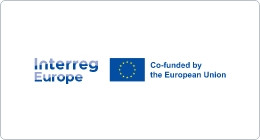Tenders
Getting new business is not just placing an ad and waiting, but actively monitoring the world playground who is looking for what.
Definition of Tenders
A tender is a formal invitation issued by an organization, government body, or private enterprise to suppliers or contractors to submit proposals or bids for the supply of goods, services, or projects. The tendering process is widely used across sectors such as construction, IT, healthcare, and energy.
Key Features of Global Tenders
- International Reach:
Global tenders involve participants from multiple countries, enabling businesses to tap into diverse markets and expertise. This fosters competition and ensures cost-effective and high-quality solutions. - Regulated Processes:
Tenders are governed by specific regulations, such as the World Trade Organization’s Agreement on Government Procurement (WTO-GPA), regional trade agreements, or national procurement laws, ensuring transparency and fairness. - Digital Platforms:
Many governments and organizations have moved to e-tendering platforms, which streamline the process and allow bidders worldwide to access opportunities. Examples include platforms like TED (Tenders Electronic Daily) in the EU and the United Nations Global Marketplace (UNGM).
- https://www.globaltenders.com/
- https://www.biddetail.com/
- https://www.tendersinfo.com/
- https://www.tender-service.com/
- https://www.tendersgo.com/
- https://www.tendersontime.com/
- https://ec.europa.eu/info/funding-tenders/opportunities/portal/screen/home
- Wide Range of Sectors:
- Infrastructure: Construction of roads, bridges, and buildings.
- Technology: Software development, IT services, and cybersecurity solutions.
- Healthcare: Procurement of medical equipment, pharmaceuticals, and healthcare services.
- Energy: Renewable energy projects, oil and gas exploration, and power generation.
Challenges in Global Tendering
- Complex Regulations: Different countries have varying rules, making compliance difficult for international bidders.
- Cultural and Language Barriers: Misunderstandings can arise due to cultural differences or language issues.
- High Competition: Multinational participation increases competition, making it hard for smaller companies to secure contracts.
- Cost of Participation: Preparing detailed proposals, traveling, and meeting requirements can be expensive.
Benefits of Participating in Global Tenders
- Access to New Markets: Winning a global tender opens doors to international markets and partnerships.
- Increased Credibility: Securing international contracts enhances a company’s reputation.
- Diverse Revenue Streams: Global tenders help businesses reduce dependency on local markets.
Notable Examples of Global Tenders
- World Bank Projects: The World Bank often funds large-scale projects in developing countries, requiring international bids.
- United Nations Procurement: The UN seeks suppliers for humanitarian and development projects globally.
- European Union Tenders: Cross-border tenders promote collaboration among member states.
Global tenders are a significant opportunity for businesses and governments to foster innovation, efficiency, and collaboration. However, they require strategic planning, compliance with international standards, and the ability to navigate challenges effectively





